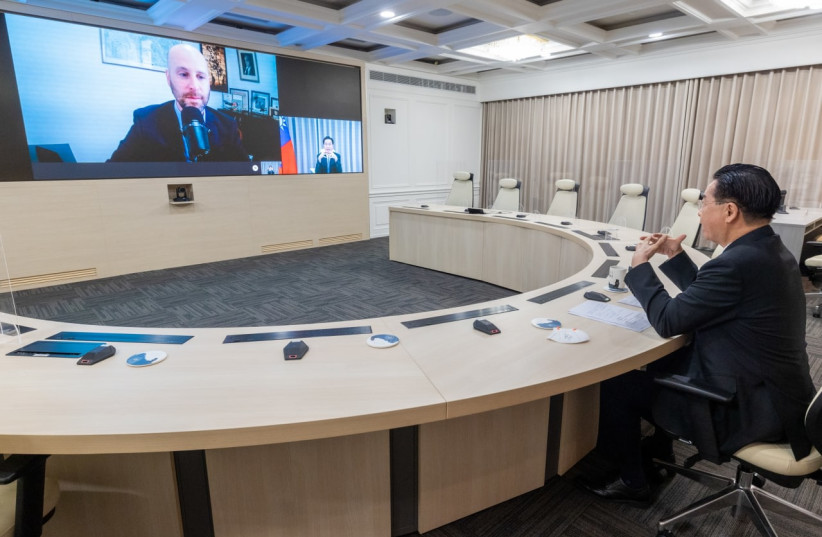The Chinese Embassy fired a stern warning to The Jerusalem Post last week, after the paper published an in-depth interview with Taiwan’s foreign minister.
Absurdly to anyone in western media, the letter demanded that the Post “respect China’s core interests” and threatened to downgrade relations with Israel should the Post not comply with China’s demands to remove the article.
The Post of course rejected this demand; Editor-in-Chief Yaakov Katz tweeted the letter in full and affirmed the Post’s commitment to journalism and truth-telling. Shortly after, the letter was also met with condemnation by MK Moshe Arbel.
Sadly, this is not China’s first attempt to manipulate and control foreign press and its contributors, including in the Post with articles I have written.
Background
In February, the Chinese Embassy complained after I wrote about China’s gross human rights violations. The embassy called it “malicious slanders” and subtly threatened to downgrade Israel-China ties.

Referring to me, the Chinese Embassy spokesman wrote, “People would ask, what forces are behind this author to support the long-term groundless and malicious attacks on China? We warn those forces who smear China.... Their scheme will never succeed.”
Unfortunately for China, Israel’s press is both free and independent, and also unfortunately for China, I will continue to write about pressing issues, including the need to defend a democratic Taiwan or call out human rights abuses.
That being said, China’s attempts to interfere with foreign press should be internationally condemned, and governments around the world must work to ensure that robust freedom of the press is protected from any interests seeking to censor it.
China has been ramping up its interference with foreign press for several years. In 2019, Reporters without Borders (RSF) released a report detailing how the Chinese Communist Party (CCP) has spent $1.3 billion to increase the presence of Chinese state-run media internationally, and how China has attempted to control foreign media outlets by buying a stake in them. As a result, journalists and contributors have faced consequences for their anti-China views.
A columnist for a South African publication, 20% of which was owned by China, had his column canceled after he criticized the CCP. Similarly, journalists in Sweden and Russia have been threatened by Chinese Embassy officials (much like I experienced myself) after writing unfavorable articles about China. China has acquired stakes in or agreements with local media outlets in the Czech Republic, Australia, Egypt, Serbia, the Philippines, Italy and elsewhere. In Africa it has essentially overhauled the media, creating entirely new, Chinese-controlled media outlets and hiring “journalists” whose reporting it can control.
The RSF report stated that China is regularly “employing blackmail, intimidation and harassment on a massive scale” to control what foreign journalists say about China. This fits with the behavior of the CCP during the Beijing Olympics, in which foreign press restrictions were ramped up and journalists were prevented from doing their job on the ground.
Many foreign correspondents based in China have been expelled, denied credentials, harassed, or worse. In 2021, BBC Beijing correspondent John Sudsworth clandestinely fled China for democratic Taiwan (one of the countries with the highest free press rankings). And since the onset of the COVID-19 pandemic, China’s efforts to censor journalists at home and abroad have only intensified.
Even online, foreign journalists are targeted. The Committee to Protect Journalists reports that state-run news organizations as well as anonymous social media users often share the names and photos of “anti-China” journalists, attacking and harassing the journalists online. The CPJ argues that this is part of a broad international strategy by China to intimidate and censor foreign journalists.
This oppression of journalists is hardly surprising given how China treats its own press. According to the World Press Freedom Index, China is ranked 175 out of 180 for press freedom, and it also leads the world for the highest number of jailed journalists.
As such, it is all the more important that Israel take the antidemocratic agenda of the CCP seriously as a threat to our values of free speech and free press in the State of Israel, and that both Israel’s Foreign Ministry and its private press take a strong stand against such interference.
The writer is a journalist, human rights activist, and expert in online antisemitism and hate speech.
